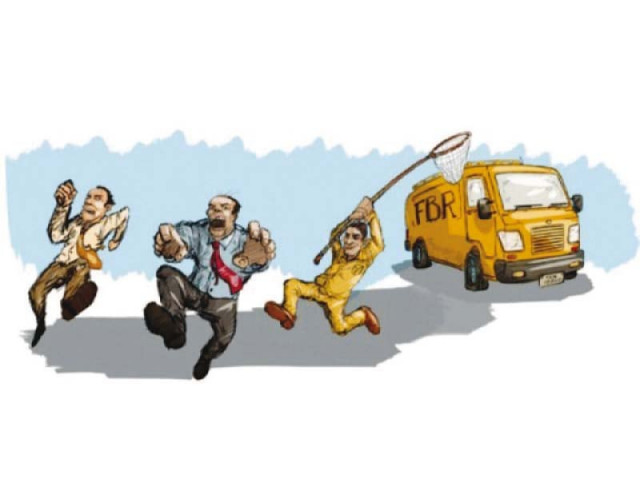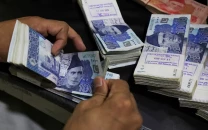Government mulls ‘asset regularisation scheme’
Negotiating with traders in attempt to bring them into tax net

Negotiating with
traders in attempt to bring them into tax net. CREATIVE COMMONS
After a hiatus of about five months, the government has started deliberating over a scheme to bring estranged traders into the tax net by addressing their biggest concern - how to regularise assets the business community has stashed so far.
Finance Minister Ishaq Dar chaired a meeting for an ‘assets regularisation scheme’ for traders who have a share of 18% in the national economy, but pay little in taxes.
Shortfall: Absence of political will behind low tax revenue
Due to their negligible contribution, the government has also introduced an advance income tax on purchases retailers make from all kinds of suppliers and manufacturers. From July through September this year, the Federal Board of Revenue (FBR), however, only collected Rs365.3 million under the head.
“The biggest challenge the government faces currently is a balancing act between relaxing laws to allow traders to legalise their hidden wealth including the working capital and getting a reasonable amount of taxes from them,” said a senior government official involved in the discussions.
“The government is extra careful in finalising the assets regularisation scheme as any package giving a sense of tax amnesty scheme would invite opposition from the International Monetary Fund (IMF),” said another official who attended the meeting with Dar on Thursday.
Currently, the government has two options. “The first is simultaneously allowing payment of taxes and regularisation of assets over a period of three years,” said the official. “According to the proposal, in the first year, by paying a certain amount of tax, the retailers should be allowed to regularise a certain amount of hidden wealth.
Withholding tax: Traders to go on strike
“The other option is for the traders to first pay taxes for a couple of years and then be allowed to legalise their assets under a tax-to asset regularisation formula,” the official added.
In June this year, the government imposed 0.6% withholding tax on all banking sector transactions carried out by non-filers of income tax returns. After countrywide protests and pressure from the ruling party, the Finance Ministry agreed to lower the tax amount to 0.3%.
All traders are not non-filers. There are some who despite being filers have not declared all their assets and bank accounts. They conduct business through Benami accounts.
The government has already made a commitment with the IMF to submit the ‘Benami Bill’ in parliament by January next year, aimed at cracking down against this practice.
Withholding tax on bank transactions: Traders hit the streets nationwide
“Dar, on multiple occasions, has acknowledged the problem of undeclared assets held by traders. However, he is not ready to give any unilateral concession and prefers on negotiating a ‘win-win deal’,” said the sources.
The government has already reached an interim arrangement with the traders and has sought time till November 15 to work out the scheme. The deadline, however, is likely to be missed as the government is also in the process of preparing a mini-budget under a condition of the IMF.
The Tax Reforms Commission has also made a similar proposal to bring the retailers in the tax net. The FBR though is not willing to accept the proposal in totality. According to the TRC, the retailers, having up to Rs5 million annual turnover, should be charged a fixed flat tax rate and they should be exempted from the audit for a period of three years.
The retailers should be required to file the return of total income along with the tax payment on the due date, which will be conclusive evidence in respect of the income.
The TRC proposed that retailers should be broadly classified in two distinct categories; rural and urban. The retailers in urban categories should be further categorised into three categories of high, medium and low income groups based on the area of income capacity.
Published in The Express Tribune, November 14th, 2015.
Like Business on Facebook, follow @TribuneBiz on Twitter to stay informed and join in the conversation.



















COMMENTS
Comments are moderated and generally will be posted if they are on-topic and not abusive.
For more information, please see our Comments FAQ